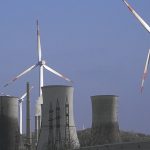
Europe’s Gas Power Plant Overbuild Undermines Climate Credibility
November 15, 2024 12:01 amAs European countries position themselves as global climate leaders at COP29, a new briefing from Beyond Fossil Fuels reveals a […]

As European countries position themselves as global climate leaders at COP29, a new briefing from Beyond Fossil Fuels reveals a […]

BAKU, 15 November, 2024 – As European countries position themselves as global climate leaders at COP29, a new briefing from […]

The Romanian government has published an emergency law for the phase out of coal by 2030. It is expected to be approved within a month. It constitutes a two year acceleration of the country’s original coal exit plan announced last September, and clears the way for Romania to exploit its enormous solar and wind energy potential.

The Romanian government has published an emergency law for the phase out of coal by 2030. It is expected to be approved within a month. It constitutes a two year acceleration of the country’s original coal exit plan announced last September, and clears the way for Romania to exploit its enormous solar and wind energy potential.

While modern district heating systems can significantly contribute to the integration of renewable energy in order to decarbonise our energy system, many of the existing systems in Central and Eastern Europe are still highly inefficient and heavily reliant on fossil fuels, such as oil, fossil gas or coal.

Romania has confirmed that it will exit coal in its National Resilience and Recovery Plan (NRRP) submitted to the European Commission.

The Romanian government’s proposal for CE Oltenia’s restructuring is a test for the European Commission’s commitment to aligning state aid with the European Green Deal.

A leaked Romanian government document indicates that Romania intends to phase out coal by 2032.

It has been five years since the UN Paris Climate Agreement, and in that short time, half of Europe’s coal plants have closed, or have announced pre-2030 closure plans. 2030 is now the key date for coal in Europe and the OECD, as it’s the latest possible moment these countries can close their coal plants and still meet the goals of the Paris Agreement.